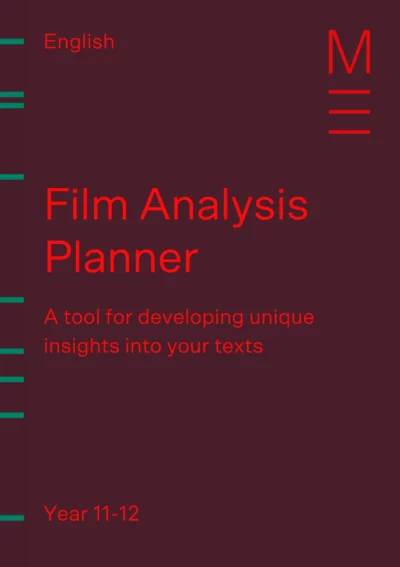Welcome to Matrix Education
To ensure we are showing you the most relevant content, please select your location below.
Select a year to see courses
Learn online or on-campus during the term or school holidays
Learn online or on-campus during the term or school holidays
Learn online or on-campus during the term or school holidays
Learn online or on-campus during the term or school holidays
Learn online or on-campus during the term or school holidays
Learn online or on-campus during the term or school holidays
Learn online or on-campus during the term or school holidays
Get HSC Trial exam ready in just a week
Get HSC exam ready in just a week
Select a year to see available courses
Science guides to help you get ahead
Science guides to help you get ahead
In this post, Gemma explains how she balanced her studies with performing arts to get three Band 6 results.

Join 75,893 students who already have a head start.
"*" indicates required fields

Join 8000+ students each term who already have a head start on their school academic journey.
Gemma balanced her passion for performance with a dedication to study to score Band 6 in 3 of her subjects. In this post, we share Gemma’s hacks for HSC English students.
Table of contents:
Name: Gemma Nha
School: The McDonald College
ATAR: 98.80
University: Sydney Conservatorium of Music for a Bachelor of Music (Performance) majoring in classical voice
I feel like my entire life has been a juggle of academics and performing arts, and I was lucky enough to attend a school where I got a strong academic schooling balanced with performing arts training.
The key to studying any subject is to study effectively. It is much easier on the brain to study in short bursts with a high level of concentration than to study for long hours with half your mind on parametric equations and the other half on whether Justin Bieber and Selena Gomez are back together.
English was the most difficult subject for me, despite my high rankings and marks. While I excelled in comprehension, essay writing was a bit of a pain and creative writing was my weakest point.
The only way I maximised my marks and climbed up the ranks was by spending time working on English (as much as I dreaded it).
It wasn’t like Mathematics, which I worked on daily, but it was ensuring that I put in the work to reap the bountiful harvest.
These are little things that I did to study for English:
Find out what your prescribed texts are and start reading them, first for leisure, then with a pencil and sticky notes, and then with further analysis.
Find online notes for your texts. Unless your school was like my school and did slightly uncommon texts, there should be plenty of online resources.
Ask top graduates what kind of assessments were given, and if they had any copies of their own essays.
I realised over Year 11 and Year 12 that there’s nothing wrong with asking for help.
If someone says, “I never read my HSC texts.” That’s a lie. And if they actually didn’t, chances are, their marks weren’t that great.
There is a certain level of fresh understanding that comes each time you read a text – it’s like how you can only improve your stage presence as you increase the number of times you perform to an audience.
The more you read your text, the more in-depth, sophisticated and comprehensive your essay.
Teachers are usually willing to look at your draft assessments, creatives and essays for feedback. If not, ask a past student who did well in English.
Ask your Matrix teachers and tutors for a professional opinion.
Ask your family. If they don’t understand it then you’ll need to adjust it so that they can. It is important to get feedback so that you can improve your writing style and technique.
Matrix English courses teach you how to write comparative essays with expert feedback and structured guidance.
You will know based on your marks and interest what parts of English you are good at or not.
I was best at comprehension. But I wasn’t so good at creative writing because of a lack of sophisticated vocabulary, and my essays were only slightly above average.
So, I split the time I spent on English, prioritising brainstorming and vocab work for creative writing, then spending time on perfecting my essay theses. Only if I had spare time, I’d work on comprehension.
My peers would always ask me, “Why do you dislike English so much when your marks and ranks are so good?” It was because I was spending so many dreaded hours trying to perfect my essays and my creative writings.
If you work hard, if you give your 100% commitment, there’s no way you can’t excel.
At the end of year 11, I logged in to our school’s Moodle and downloaded the previous year’s assessment notifications for English.
Though the questions asked for each assessment wouldn’t be exactly the same, I knew that I would need to prepare a PowerPoint for AoS, three essays for Mod A, a podcast for Mod B, and practice viewing tasks for Mod C.
Then, when we actually got the assessment tasks, I had a head start because I had asked the top students of the previous year for their assessments, and I already knew what was coming.
Thus, I was a little less stressed out than some of my peers and could focus whole-hearted and whole-minded on the task at hand.
With take-home tasks, I would do them bit by bit daily and try to finish them within the week so that I could send in drafts to my teacher and receive feedback. That way, the final copy would be written to perfection.
I recall spending a lot of time preparing for my Trial English papers. Here’s how I did it:
For my creative writing, my teacher suggested at least 3 creatives in preparation, but I chose to have one that I could fit with any line of the rubric.
I think this was more effective because it is easier to memorise one creative that can easily be adjusted to cover multiple aspects of the rubric.
I prepared for my discovery essay by listing multiple techniques, points and quotes, forming body paragraphs with 3-4 of the points, and then memorising the rest, in case I needed them in the exam.
I also prepared two related texts, unlike many other people in my class, so that I had a range of choices. So while I was giving up two creatives, I was balancing it out by analysing more related texts.
Paper 2 was definitely much more difficult than Paper 1 in regards to preparation.
There was a lot of back and forth emailing between my teacher and me so that I could prepare the best possible essays for Mod A, B and C. I spent time leading up to the Trials re-reading my texts, looking through past assessments to see what I was good at and what I needed work on, and researching anything and everything I could find on my prescribed texts and the authors.
For Module A, I studied the Intertextual Perspectives between Niccolò Machiavelli’s The Prince and William Shakespeare’s Julius Caesar.
This was by far the hardest essay to prepare for, and I spent hours researching the contextual details of Machiavelli and Shakespeare, flicking through my Matrix textbook and discussing the content and context with my peers and teacher.
Discussion has been the most help to me over the course of the HSC, because you learn to convey your points in a clear, concise way, and by agreeing and challenging other students’ opinions, you can gain a heightened understanding of the text with new ideas that you can incorporate into your essay.
My Module B text was Tim Winton’s novel Cloudstreet, and I prepared for this essay by taking personal responses of previous students and combining them with my own to create an extensive personal response.
For Module C, I studied Rolf de Heer’s Aboriginal film Ten Canoes, and in preparation, I looked up the Aboriginal tribe in the film and watched a documentary of the behind-the-scenes and de Heer’s thought process in making the film. This approach gave me a deeper understanding of why he chose the form of a film, and the message he was trying to portray.
Create powerful study notes and start writing more insightful essays on film Fill out your details below to get this resource emailed to you. "*" indicates required fields
Download your FREE Film Analysis Planner

Download your FREE Film Analysis Planner
I felt the preparation for the HSC English Exam was much simpler and easier than that of the Trials.
By this stage, I had read and watched my texts sufficient times to be able to write detailed and sophisticated essays. Instead of reviewing my texts as I did for the Trial, I used the time leading up to the HSC exam by going through my Trial exam, seeing what I needed work on and sitting at my desk to make the essays better.
Most of the study in preparation for the HSC is a matter of improvement: you look back at the work you’ve done earlier in the year and see how you can make that essay more concise, how to make it look informative, how to make the creative sound exciting.
If you can improve from every assessment, the final essays and creatives for the HSC should be almost perfect.
One word. Stamina!
It may go by in a flash, but a year is a long time, and you have to maintain your stamina and health.
Don’t stay up till 3 am studying on a school night – you’re not doing yourself any good. Have a routine. Only you know the minimum hours you need to sleep in order to function, so make a schedule around those hours and get into a routine.
Written by Guest Author
We have regular contributions to our blog from our Tutor Team and high performing Matrix Students. Come back regularly for these guest posts to learn their study hacks and insights!© Matrix Education and www.matrix.edu.au, 2025. Unauthorised use and/or duplication of this material without express and written permission from this site’s author and/or owner is strictly prohibited. Excerpts and links may be used, provided that full and clear credit is given to Matrix Education and www.matrix.edu.au with appropriate and specific direction to the original content.